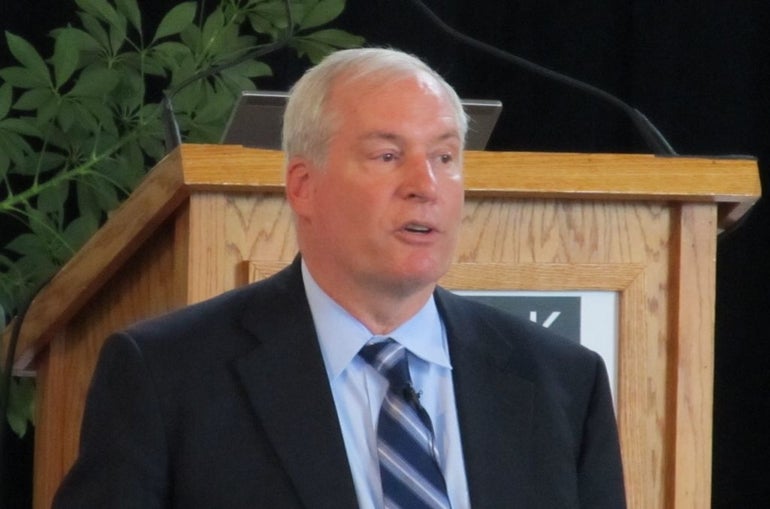Fed official: Not much evidence of economic 'snapback'
 FILE PHOTO
Eric Rosengren
FILE PHOTO
Eric Rosengren
Bad weather deterred economic activity this winter, but is only responsible for some of the nation's recent economic difficulties, according to the regional president of the Federal Reserve Bank of Boston.
"The data were not just weak during the worst of winter; they were also weak before the storms and have been weaker than expected ever since," Boston Fed President Eric Rosengren said in remarks he planned to deliver at a conference Monday morning in Hartford, Conn. "So economic growth for the first half of this year looks to be well below what was expected, even correcting for some temporary disruptions."
Rosengren called the first half of 2015 "disappointing," but predicted a stronger second half, citing the impacts of growth in personal income, lower gas prices, and growing household net worth.
"So far this improvement is only in the forecast, and not in the data," Rosengren said. "The data have disappointed before, and an appropriately data-dependent monetary policy requires confirmation in the numbers, not just in forecasts of better times."
Economic growth over the first half of the year seems unlikely to reach a level where the Fed would raise short-term interest rates, Rosengren said. That view, he said, is heightened "by global political, security, and financial conditions that suggest the risks of a negative shock from abroad remain elevated, as has been the case over the last several years."
According to Rosengren, real gross domestic product grew at an annual rate of 2.2 percent in the fourth quarter of 2014, declined 0.7 percent in the first quarter of 2015, and is expected to grow 2 percent this quarter. If those rates persist, he said, "it is unlikely to be associated with further significant declines in the unemployment rate."
In previous economic cycles, monetary policies were tightened following two-year periods in which real gross domestic product grew more than 3 percent, Rosengren said, making a case for "continued patience in monetary policy."
Rosengren said consumers remain reluctant to spend and the personal savings rate is still "well above" its level before the Great Recession.
"If consumer behavior is still being impacted by the experience of the financial crisis, the Great Recession, and the painfully slow recovery, then it is possible that the economy will not be as robust as many economic models would suggest, because the models do not take into account this behavioral change," Rosengren said.
According to charts accompanying his presentation, states in the Northeast flirted with record cold average temperatures this winter while states in the West were dealing with record high temperatures.
Rosengren was the keynote speaker at Monday's annual breakfast hosted by Capital Workforce Partners.









0 Comments